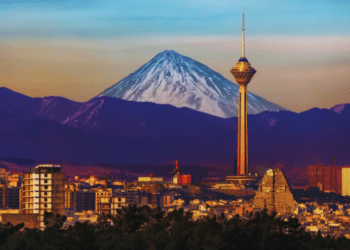In a letter celebrating Sir John A. Macdonald’s 200th birthday, former US President Jimmy Carter reflects on the challenges Macdonald faced in working to create Canada, and the great North American relationship that has flourished since then. The letter was provided to MLI by Sir John A. Macdonald Bicentennial Ambassador Arthur Milnes.
By Jimmy Carter
It is a pleasure for me to join my Canadian friends and neighbors as they mark the bicentennial of the birth of Canada’s first and founding Prime Minister, Sir John A. Macdonald.
Just as Americans came together in 2009 to mark the 200th anniversary of the birth of Abraham Lincoln, Canadians are uniting to celebrate your Father of Confederation’s commanding legacy. Such an anniversary is a once-in-a-generation opportunity to celebrate a nation’s history and Canada is rightly seizing this moment.
The residents of Kingston, Ontario have played a leading role in organizing Canada’s celebrations of her Founding Father, and I congratulate them for all their hard work and dedication in preserving Macdonald’s legacy. I witnessed Kingston’s pride in Sir John A. when Rosalynn and I visited Queen’s University in 2012.
Rosalynn and I join with Kingstonians and all Canadians because Sir John A. not only established a great nation in 1867, but also bequeathed a firm partner and friend that my own fellow citizens and our leaders have relied upon ever since. One of the highlights of my own Presidency was the brave role that Canada’s Ambassador to Iran Ken Taylor and his wife and colleagues played in bringing six American hostages home to safety in early 1980.
From Sir John A.’s time onward, Canada and the United States have continued to build a relationship based on peace, mutual prosperity and progress. This relationship between two sovereign countries is an example for the world.
We have only to look at a map to realize the daunting challenges Macdonald and the other Canadian Fathers of Confederation faced in forging Canada as one. From Atlantic to Pacific and north toward the Arctic, Canada’s geography must have seemed endless at the time.
In between, the citizens of British North America were divided by race, language, geography and religion. To the south of you, our Civil War raged. Unity must have seemed an impossible dream.
It took political skill, passion, and vision to accomplish the Canadian dream, and it is Sir John A. and his talents that are being honored today.
“For 20 long years I’ve been dragging myself through the dreary waste of colonial politics. I thought there was no end, nothing worthy of ambition, but now I see something which is well worthy of all I have suffered in the cause of my little country,” Macdonald said in the run-up to Confederation.
In a world divided by race, religion and culture, Canada’s ability to unite French and English in 1867 was a shining moment for the world. This unity of purpose and the pluralistic society Canadians continue to build remains Macdonald’s greatest legacy.
President Truman put it best.
“Canada is a broad land,” he said in Ottawa in 1947, “broad in mind, broad in spirit and broad in physical expanse … the composition of your population and the evolution of your political institutions hold a lesson for the other nations of the earth. Canada has achieved internal unity and material strength by … solving problems that might have hopelessly divided and weakened a less gifted people.”
It is reassuring that America shares a border with Canada. We are blessed to do so. Together we have united our continent in trade with the NAFTA, protected our shared environment, and defended freedom from the beaches at Normandy to the mountain passes of Afghanistan.
From the United States we, too, pause to pay tribute to your Father of Confederation.
Happy 200th Sir John A. Macdonald.
And may God continue to bless the nation he did so much to create, America’s great friend and neighbor, Canada.
Jimmy Carter was 39th President of the United States.





